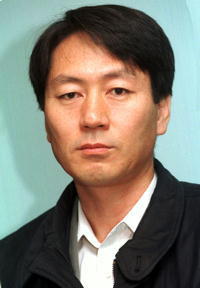 |
It is Article IX of what is called Japan’s "Peace Constitution" that disallows the country from possession of a military, the right to wage war, and the right to collective self-defense. What the report is saying is that the U.S. should actually encourage the constitutional revision and rearmament the Japanese right has been thirsting for, and indeed that is what has been happening. It is wrong to claim that issues like the USFK’s move to Pyeongtaek, wartime operational command handover, friction between Roh and Bush over how to deal with North Korea, or anti-American sentiment in Korea are the root of the problems in the U.S.-Korea alliance, reducing Korea’s standing in U.S. policy towards Asia, and leading to a bigger role for Japan. Those who claim this are either utterly unaware of the facts or perhaps know the truth but are animatrons willing to put the interests of their political faction over those of the country. A U.S. strategy that makes Korea even more subordinate to Japan - by strengthening the U.S.-Japan alliance, and classifying U.S. forces in Korea and the U.S.-Korea alliance as subordinate to the U.S. alliance with Japan - was determined well before the start of the Roh Moo-hyun administration, and has nothing to do with Roh’s views in any way. In an interview with the Asahi Shimbun last April, Armitage said there were five issues facing Asia today: nationalism, the Taiwan strait, the Korean peninsula, territorial disputes, and rebel activity in Thailand and the Philippines. He then said that relations between the U.S. and Japan would be on more equal footing once Japan finally deals with its Article IX issue, and that Japan would benefit from involvement in guaranteeing security to all other nations in the region. As far as America is concerned, he said, the past is resolved, but that there are a few nations that incite nationalism against Japan to distract their citizens from domestic issues. Armitage went as far as to say that the Japanese prime minister should continue to visit and worship at Yasukuni Shrine as long as China expresses displeasure about those visits. It would appear that to Armitage, the anger felt by China and Korea due to Koizumi’s visits to Yasukuni is nothing more than an effort to distract citizens from domestic issues. Nationalism in Asia began in Japan, and yet Armitage says nationalism is one of the biggest problems facing the rest of Asia, as he all the while stirs up ultra-right Japanese nationalism. What might his motives be?





